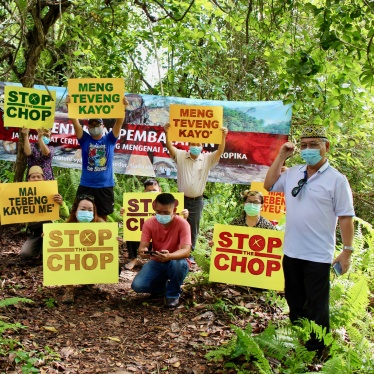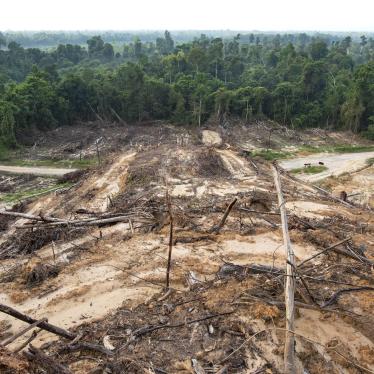Tainted
JBS and the EU’s Exposure to Human Rights Violations and Illegal Deforestation in Pará, Brazil

Deforestation accounts for significant greenhouse gas emissions and undermines forests’ natural capacity to remove carbon dioxide from the atmosphere and cool our planet. Indigenous peoples manage 80 percent of the world’s biodiversity, and often, the best protected forests are found in their traditional territories. Other forest-dependent communities also play a similar stewardship role to their forests. Despite their immense contributions, these communities continue to face major barriers to the recognition and protection of their rights. They are frequently threatened, attacked, and even killed by criminal networks and land-grabbers eager to convert the forest to land for industrial agriculture. Yet, governments are taking few effective steps to reduce deforestation and companies have become adept at skirting pressure to secure the integrity of their supply chains. Human Rights Watch supports Indigenous people and other forest dependent communities in the struggle for the recognition and protection of their human rights by challenging the economic drivers of deforestation and ending violence and impunity against forest defenders.
JBS and the EU’s Exposure to Human Rights Violations and Illegal Deforestation in Pará, Brazil

Iban Indigenous Resistance to the Timber Industry in Sarawak, Malaysia

Brazil Still Lacks Credible Plan to Save Rainforest as Amazon Crisis Persists

Health Impacts of Deforestation-Related Fires in the Brazilian Amazon

Government, Importers Should Protect Indigenous Rights in Sarawak

Environmental Impact Assessments, Strategic Environmental Impact Assessments and the Right to a Clean, Healthy and Sustainable Environment


Ensure Rights Protections for Indigenous Peoples

Strong Benchmarking of Country Risk Is Key to Law’s Success

European Parliament Risks Undermining Groundbreaking Legislation


Delay Would Enable Continued Deforestation, Rights Violations


Designate Sarawak as ‘High Risk’ Under New Anti-Deforestation Law
